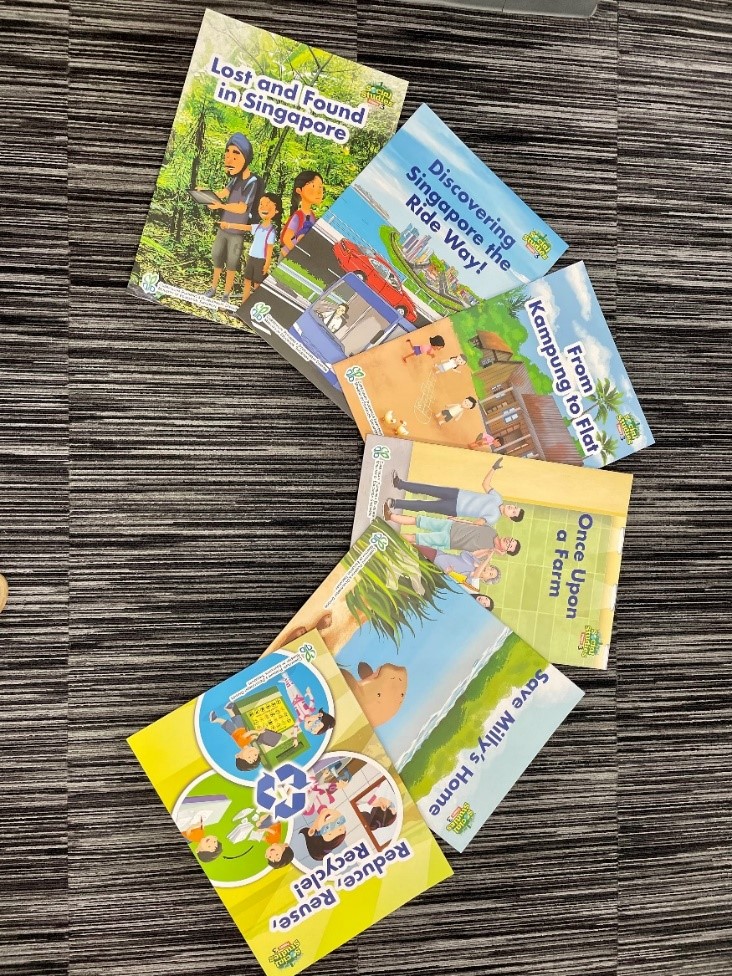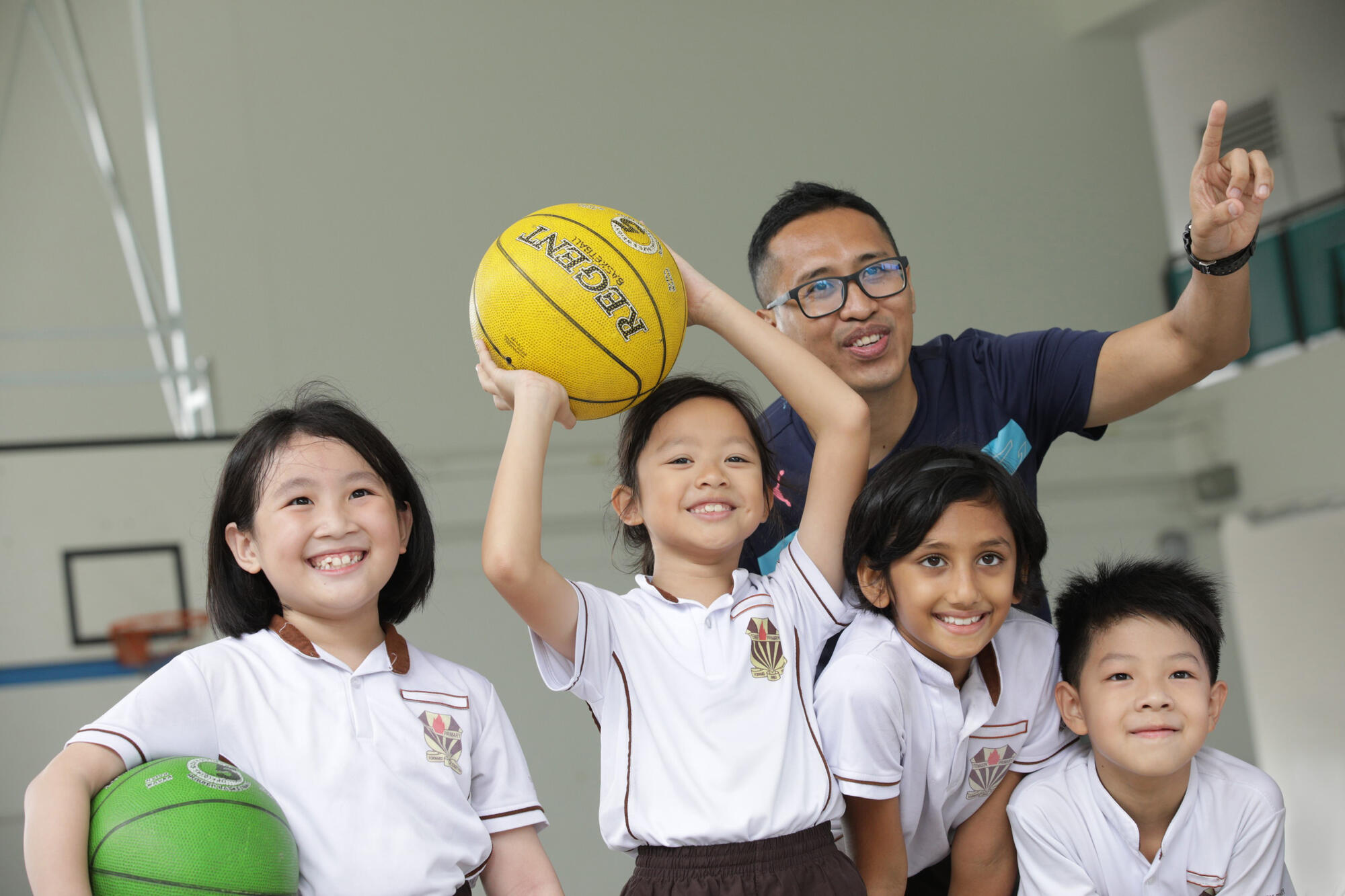“What do you think life was like in the past?” I asked my nine-year-old, as a bout of spring-cleaning unearthed some old photos my husband and his uncle took at a kampung years ago. The grainy, sepia-toned photographs from a lifetime ago were objects of fascination to my son whose idea of a photograph exists in the cold hard shell of a mobile phone.
The teacher in me saw the opportunity to use the photographs to engage him in a conversation about life in the past and Singapore’s resettlement chapter. We quizzed my husband about why his family moved out of his kampung and stayed in a flat. We also searched for more images of kampungs and compared them to our present living conditions. As we chatted, I was pleasantly rewarded with snippets of childlike wisdom:
Me: Why do you think we live in flats now instead of in kampungs?
My son: Houses in a kampung would catch fire easily and spread quickly. That’s very dangerous. Living in HDB flats is much safer.
Me: Do you want to live in a kampung?
My son: Yes! I can play with my friends outside my house and there would be many different games we can play. There wouldn’t be a need for security cameras as everyone is a friend.
My husband’s recounting of afternoons spent sliding down hillsides on cardboard and scattering feed to the village chickens while perched on the shoulders of his uncle sounded fascinating to my son. He could imagine himself doing the same, had he been born in that era. These stories are windows into our nation’s history through which my son could glean some insights on how people in Singapore lived in the past.
It was heartening that the central theme in our conversation was about the simplicity of life in the past. Life was simpler, and at times harder. People did not have much – we hear about how families might have had to share a television between them, or pile into the back of a lorry to get around – but their days were rich with the simple joys of everyday life.
How Social Studies helps students discover Singapore and the world
There are countless tales about Singapore’s past that are waiting to be discovered – tales of sacrifice, resilience and perseverance. Such stories are a feature of the Primary Social Studies curriculum and reflect shared experiences that unite us as a nation.
As part of the national curriculum, Social Studies is also a child’s first touchpoint with Humanities and Social Sciences at the primary level.
It begins with more recent experiences like how Singapore was united in the fight against SARS and COVID-19. As students progress to upper primary, we bring them further back into the past where they read stories about the early settlers and their contributions towards the development of Singapore. With an understanding of our shared heritage, students then learn stories about the founding years before Singapore gained independence and the journey that has led us to where we are today.
Through these stories, students develop a sense of rootedness and appreciation for Singapore. As students navigate an increasingly interconnected world, it is important that they know the history of our nation and remain anchored in our shared values.
Ensuring our children are equipped with the 21st century competencies
Looking back at the conversation I had with my son, I realised that I had planted the seeds of inquiry in him to understand what life was like in the past; this is especially gratifying for me as the pedagogical approach used in the SS classroom is inquiry-based learning.
Children are by nature inquisitive about the world around them and will want to clarify about what they have seen or heard. Hence, teaching through inquiry aims to harness this innate motivation in children to discover the world they live in.
In inquiry-based learning approach is learner-centred, and children are empowered to be responsible for their own learning. With this approach, students’ interest about a topic is piqued using tactile and digital resources or by telling stories and sharing about personal experiences.
Students are encouraged to find out more about the topic by gathering data from a variety of sources. They could interview their family members, or comb through videos, websites and news articles. After exploring multiple sources of information, they then make sense of the information gathered and consolidate their learning.
In addition, at appropriate junctures of the lessons, teachers engage students in reflection by asking questions that provoke deeper thought or to provide justification for their opinions. In doing so, students can learn to consider different viewpoints and exercise a discerning eye – critical thinking skills that are implicit in the inquiry-based learning approach.

Huamin Primary School
Skills such as critical thinking, where students adopt varying viewpoints and sharpen discernment, are fostered through Social Studies’ inquiry-based learning.
Besides critical thinking skills, quality decision-making skills and cross-cultural competencies are developed through the Social Studies curriculum.
For instance, in Primary 3, Big Books such as Reduce, Reuse, Recycle and Save Milly’s home, present opportunities for students to discuss the consequences of individual and group actions on the environment. Students will also get to examine causes for the large amount of waste produced in Singapore and offer solutions to reduce the amount of waste. These activities help to nurture the dispositions to make informed decisions and to participate constructively in societal issues that concern them.

At Primary 3, Big Books such as Reduce, Reuse, Recycle and Save Milly’s Home, are used in Social Studies lessons, presenting opportunities for them to discuss the consequences of individual and group actions on the environment.
Students also develop global awareness and cross-cultural skills, thanks to opportunities to engage in conversations about different cultures during class discussions. At Primary 2, for example, students learn about the diverse groups of people in Singapore and the customs and traditions of different communities. Understanding cultural diversity and sensitivity is essential for working with people from different cultural backgrounds in this globally connected world.
Social Studies is found in our everyday life
Social Studies prepares students for life and opportunities for learning can be found in everyday situations. You can also plant the seeds of inquiry by encouraging your child to ask questions based on observations of their environment and events happening around them.
- Conversations may begin anywhere: Family celebrationsShare stories of how your family celebrated this festival and compare customs and traditions of different communities in Singapore.
- The supermarketPoint out the food labels of your child’s favourite snacks and get them to find out where our food comes from and how closely connected we are to the rest of the world.
- Streets in Singapore
Ever noticed the different names of streets in Singapore? Get your child to think about where the streets got their names from and find out the origin behind the different street names.
For my child, his learning about kampungs did not stop with our conversations at home.
His granduncles were thrilled to find a willing listener in a nine-year old to regale with tales of their kampung lives. The natural curiosity ignited in him then spurred him on to read up on kampung life-the beginnings of self-initiated research.
Within his little circle of friends, he was excited to share real-life anecdotes of kampung life which most of them had no inkling of. These are baby steps but it warmed my heart to know that these precious anecdotes of days past would not be forgotten.
Ms Huang Churu is a current Curriculum Resource Development Officer at the Curriculum Planning and Development Division at MOE HQ with 13 years of teaching experience in Social Studies.





.jpg)
